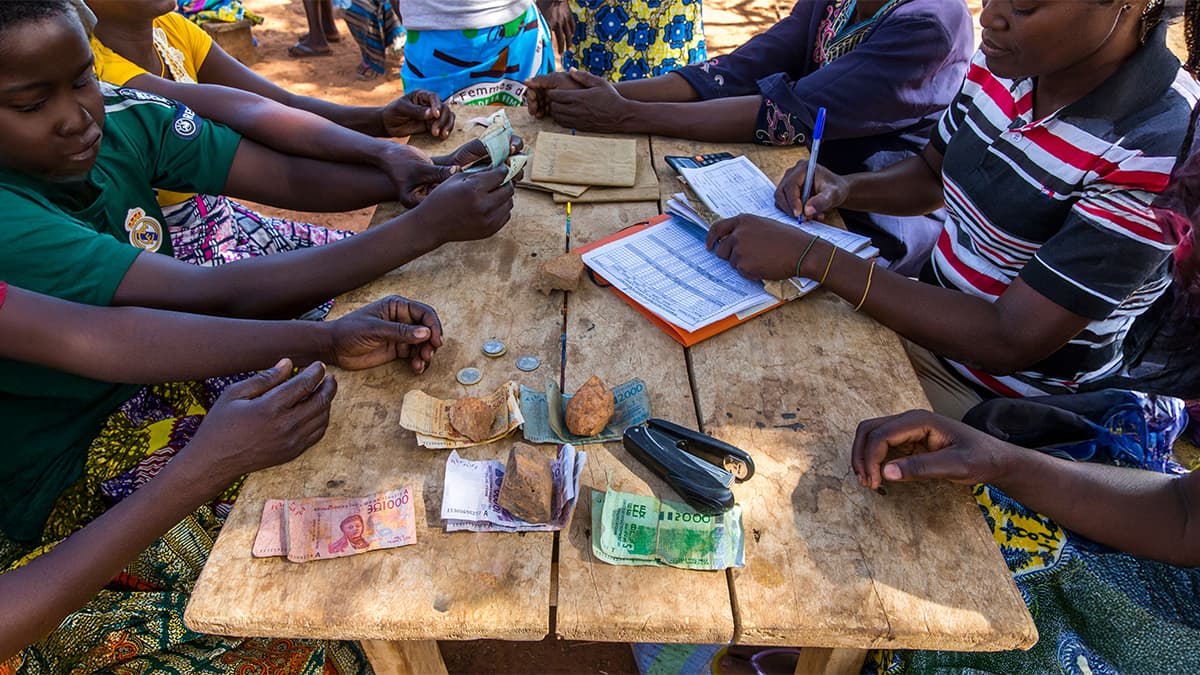.jpg)
When you buy a new piece of furniture, do you wonder where the wood was sourced from, when and where the wood was chopped, who loaded the logs and which companies processed it? These may seem to be incongruous queries for you and me. As customers, we barely think beyond the comfort and longevity of our furniture. But in a flourishing global timber trade, a log of wood has a long trail to cover before it is processed into furniture. The Global Timber & Wood Product Market size was estimated at $625.99 billion in 2022 and is projected to grow at a CAGR of 6.11 per cent to reach $844.30 billion by 2027. (Source: BusinessWire)
For a bunch of reasons, tropical timber-producing countries are building and implementing timber traceability systems, like exercising control over the forest sector and getting private actors access to regulated markets oriented towards legality. Plus, they need to sharpen monitoring and control over the management of forest resources to combat illegal logging. For instance, Peru has created a national timber traceability system that tracks timber from the forest to the industry, to reduce the risk of illegal timber entering the market.
.jpg)
Need for Transparent Timber Traceability Solutions
Timber-producing countries have the mandate to document the legality of timber products to show they fulfil international commitments that require proof of legal origin, such as the European Union Voluntary Partnership Agreements (VPAs) with select countries and the United States of America–Peru Free Trade Agreement. VPAs are trade agreements signed between the EU and any willing timber-producing country.
So far, 15 countries are either implementing a VPA or are at various stages of negotiation with the EU. VPAs have brought about significant improvements in regulations and laws, making things smoother and more efficient. As a result, there has been a decline in illegal logging and trade within certain industries. Additionally, there has been a positive shift towards promoting a mindset of ‘traceability’, particularly among local small and medium-sized businesses. This means that they are more conscious of where their resources come from and are taking steps to ensure accountability.
But challenges persist……
While VPAs have stimulated the adoption of private third-party traceability systems (e.g. chain-of-custody), national data collection and analysis and end-to-end implementation of national traceability systems are still fragile in most countries. Tracking timber from its origin to the final product can be quite a daunting task. Timber supply chains are intricate webs of processes, making it challenging to establish effective traceability systems. Such systems often demand changes in approaches, operations management, and logistics, which in turn require substantial investments of both money and labor. On top of that, those responsible for implementing these systems often encounter opposition from the industry itself and face gaps in their own capabilities.
To overcome these hurdles, forest authorities need strong support from top-level politicians who recognize the importance of timber traceability. They also require a robust legal and regulatory framework to ensure compliance and enforcement. Additionally, financial and technical assistance is crucial to successfully developing and implementing traceability systems.
.jpg)
How CSM Tech is Revitalizing Timber Trade in Gabon
Indian IT multinational CSM Tech with big stakes in the African business landscape, has recently inked a multi-million dollar agreement with the Ministry of Economy and Recovery in Gabon. The deal is for the implementation of a timber traceability solution and an electronic timber trade platform for the Ministry.
The project aims at the digital transformation of existing forest and business operations, ensuring sustainable forest management through digitalization and end-to-end tracking of all administrative and technical activities. The digital platform aims at transparency in transactions, rooting out illegal timber harvest and ensuring environmental sustainability by cutting Greenhouse emissions. Further, the platform is designed to perform forecasts in timber provenance for 20 years. This is akin to having a GPS system for a forest, allowing users to track the progress of timber production, understand where it is being transported, and anticipate possible areas of conflict. It would be like having a comprehensive map that not only shows the terrain but also the industry and government regulations that protect the environment.
Illegal production and trade of timber is the key cause of environmental degradation, leading to the loss of habitats and biodiversity and increased GHG emissions. It is critical for the Gabon government and the SEZ to ensure an uninterrupted supply of raw materials and keep a vigil on the traceability of logs. Gabon is a predominantly forest nation where timber is the crucial export item after oil and manganese and accounting for nine per cent of the export share by value.
With its ability to collate, consolidate and validate logging operations even in remote forest locations, the digital platform developed by CSM Tech caters to both state and non-state actors- Concessionaire, Government, Contract Loggers, Graders and Logistics Providers.
The introduction of the timber marketplace solution brings in many benefits like
- Plugging revenue leakages
- Getting over operational inefficacies
- Setting in new standards for log trading through inventory grading processes
- Creating new service revenue opportunities for the Gabon government and SEZ through multiple monetization use cases and integrating the complete ecosystem.
When fully implemented, such a traceability system can trace individual logs, or batches of timber, from a legal place of harvest through the supply chain to domestic or international retail. With improved quality control, streamlined processes and business optimization, it can increase business competitiveness and open up access to regulated markets, which are sensitive to sourcing illegal or controversial timber.


























































We will verify and publish your comment soon.